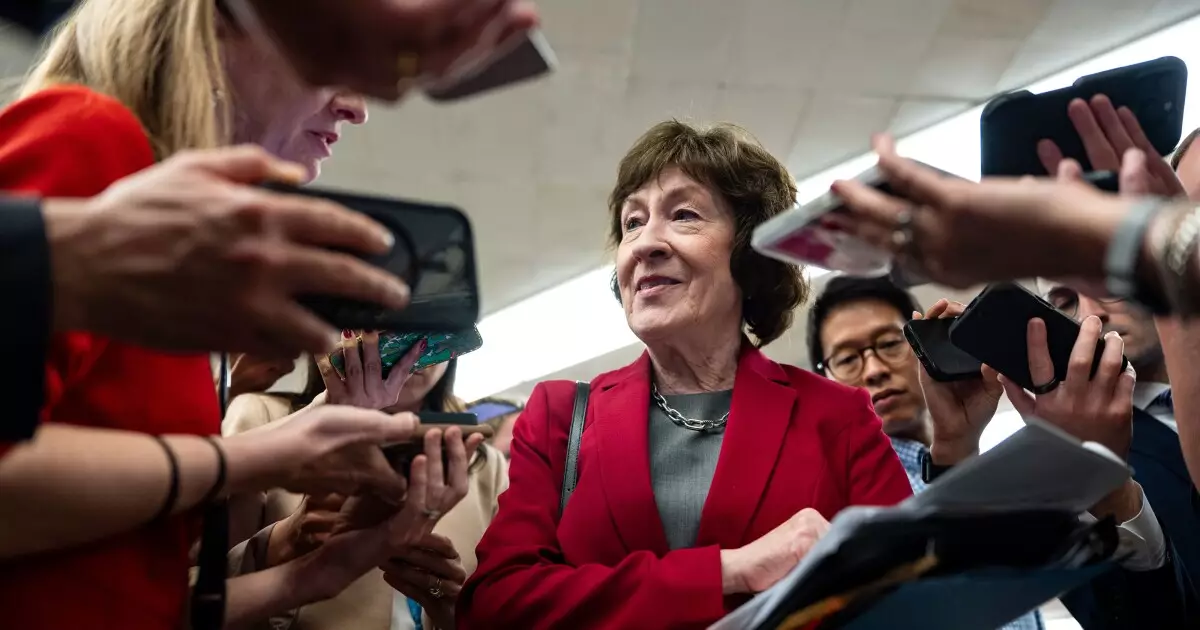The recent congressional approval of a handful of fiscal 2026 appropriations bills reveals both a glimmer of bipartisanship and an underlying fragility that threatens to destabilize America’s fiscal landscape. While passing these bills before the August recess signals a rare moment of legislative cooperation, the broader picture exposes a fundamental inability to reach comprehensive funding agreements, leaving the nation vulnerable to the specter of a government shutdown. This situation underscores a deep-rooted issue: the entrenched partisan gridlock that hampers effective governance.
Though the Senate managed to pass bills for key sectors—such as Veterans Affairs, Agriculture, and Legislative Branch—the failure to include the critical Commerce-Justice-Science package highlights the persistent disagreements over strategic priorities, exemplified by the unresolved dispute over the FBI headquarters location. This deadlock demonstrates how intertwined political disputes are with fiscal policy, often rendering seemingly straightforward appropriations nothing more than symbolic gestures rather than meaningful solutions. The fact that nine out of twelve appropriations are still in limbo, while the House has only advanced two, paints a bleak picture of legislative inertia threatening to culminate in a shutdown at the end of September, unless swift, bipartisan compromise occurs.
Fiscal Discipline or Political Posturing?
The ongoing struggle over federal spending reveals a complicated dynamic between fiscal responsibility and political posturing. On one hand, the Senate’s bipartisan approach, which avoids the deep cuts initially proposed by the Trump administration, suggests a recognition of the importance of safeguarding vital government functions. The modest increases—such as a 1% rise for the Agriculture sector, 5% for legislative agencies, and 3% for military construction—indicate a cautious step towards responsible budgeting rather than reckless austerity. This measured approach could be perceived as a pragmatic acknowledgment of the necessity to maintain essential services amidst a turbulent political environment.
Conversely, the continued reliance on emergency measures—like continuing resolutions and automatic sequestration—sheds light on a broken legislative process. Automatically imposing spending cuts, such as the 5.7% reduction on direct-pay bonds like Build America Bonds, without strategic negotiation or oversight, risks destabilizing local economies that depend on federal funding. It’s disingenuous to portray these measures as purely fiscal discipline; rather, they often serve as political bludgeons, used to extract concessions or signal disapproval rather than promote prudent financial management.
Decisively, the ideological divide between the Democratic and Republican sides exposes how budget negotiations are becoming less about fiscal health and more about political dominance. Democrats, emphasizing the importance of congressional oversight and taxpayer accountability, are wary of the executive branch’s attempts to shape spending through impoundment and rescissions. Meanwhile, the Trump administration’s aggressive stance on cuts and sequestration risks undermining long-term investments in critical social and infrastructure programs.
The Future of Fiscal Governance in a Partisan Era
As the clock winds down to an inevitable fiscal deadline, Congress’s inability to craft a comprehensive and balanced budget reveals a deep malaise within American politics. The bipartisan bills passed so far are likely to be little more than temporary patches, with the real challenge lying ahead: negotiating convincingly over the remaining appropriations, preventing a shutdown, and establishing a sustainable fiscal framework. The bipartisan efforts, despite their limited scope, are often overshadowed by entrenched partisan disputes, which threaten to derail the entire process.
The upcoming legislative session must confront not only the immediate crisis but also the broader issue of how to restore credibility and functional compromise within the federal budget process. Without a fundamental shift towards pragmatic, centrist policymaking—balancing fiscal discipline with necessary investments—the risk remains that future appropriations will be subject to short-term political games, rather than serving the genuine needs of the American people and the nation’s long-term stability.

